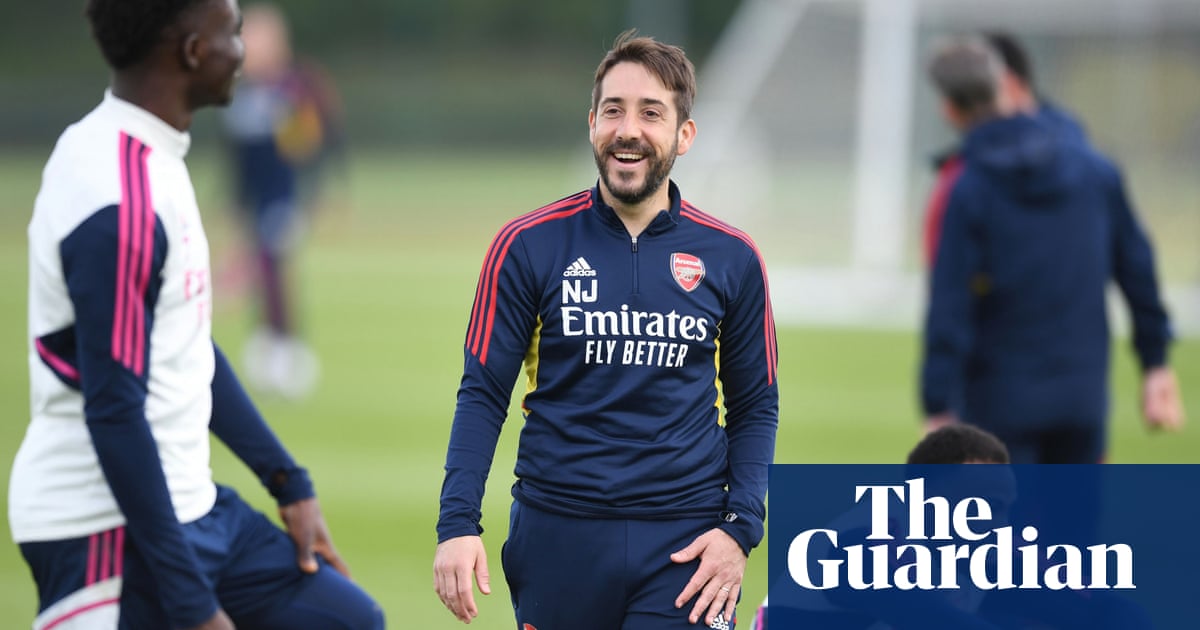
Whoever writes Sadio Mané’s scripts has been on form lately. For the second time in eight weeks, the Liverpool forward found himself with the chance to seal victory for Senegal against Egypt in a penalty shootout, although this time rather than being crowned African champions, it was for a place at the World Cup.
There had been an air of inevitability about the whole evening after Boulaye Dia’s effort deflected in off Hamdi Fathi in the fourth minute at the new Diamniadio Olympic Stadium in Dakar, which was packed with a capacity 50,000 crowd hours before kick-off. That early goal cancelled out Egypt’s 1-0 advantage from the first leg and Ismaïla Sarr had the chance to ease Senegal’s path to qualification long before the drama of the shootout, only for the Watford forward to miss a relatively straightforward opportunity.
And what drama. A series of lasers had been directed at visiting players throughout the match but they seemed to multiply as Mohamed Salah stepped up to take Egypt’s first penalty after Kalidou Koulibaly had missed the opener for Senegal. Mané’s Anfield teammate, who didn’t even get the chance to take a penalty in the Afcon final as he was down as the Pharaohs’ fifth taker, stepped up and saw his attempt clear the crossbar by several feet to the delight of the home supporters.
It was only when Sarr dispatched the fifth penalty of the shootout that the deadlock was finally broken, before Mostafa Mohamed’s effort was saved by Édouard Mendy to present Mané with the opportunity to seal Senegal’s third qualification for the World Cup.
“The game is over. Everything is over,” said Egypt’s head coach, Carlos Quieroz afterwards. “I have not much to say but words of gratitude to the players.” He was surprisingly calm but the Egypt Football Association is expected to lodge an official complaint to Fifa over the lasers, insisting they affected the vision of their players, Salah especially, during the shootout.
Egypt’s defeat was not the only hard luck story for north Africa. At one stage it seemed that four teams from the region could be on their way to Qatar until a dramatic finale to the tie between Algeria and Cameroon; Karl Toko Ekambi scored in the fourth minute of injury time at the end of extra time to send the Indomitable Lions through on away goals. Algeria’s heartache was compounded by the fact Ahmed Touba’s late goal, making it 2-1 on aggregate, had looked like being enough for Djamel Belmadi’s side.
Elsewhere, there was no such fairytale for Mali, who were the only African side in the final round of qualifying who had never previously made it to a World Cup finals. They found Tunisia too much in the end, unable to find the net in a goalless second leg after losing last Friday’s first 1-0 in Bamako. The Carthage Eagles have now made it to six World Cups but are yet to get past the group stages despite being the first African team to win a match at the finals when they defeated Mexico in 1978.
Morocco, who in 1986 became the first African team to reach the knockout stages, sailed past Democratic Republic of Congo 5-2 on aggregate and, along with Senegal, look best equipped to at least match that achievement in Qatar. Russia 2018 was the first time since the 1982 tournament that no African teams made it out of their group, with Aliou Cissé’s side no doubt desperate to emulate the class of 2002 by reaching the quarter-finals again and perhaps going where no African team has ventured before: the last four.
Ghana came closest to achieving that feat in 2010 when they were a Luis Suárez handball away from defeating Uruguay in the quarter-finals. The Black Stars are not the same force these days despite their away-goals victory over Nigeria. The Ghanaian president, Nana Akufo-Addo, summed it up best when he referenced their “dogged display in Abuja” in a tweet celebrating their qualification via Thomas Partey’s away goal, going on to say “they have made the entire nation proud” after the embarrassment of crashing out in the group stages at the Cup of Nations earlier this year.
Ivory Coast’s hopes of being in Qatar were dashed last year when they lost 1-0 to Cameroon in Douala, a match Wilfried Zaha missed after asking not to be called up. While the Crystal Palace forward later backtracked on the suggestion he was ready to retire from international football, and was subsequently part of the squad that lost on penalties to Egypt in the last 16 of the African Cup of Nations, he would have been disappointed to be denied the chance to face England at Wembley on Tuesday night after being ruled out with a suspected grade 2 hamstring injury.
His two appearances for England in 2012 and 2013 came at a time when Les Elephants were one of Africa’s most formidable sides, with the likes of Yaya Touré and Salomon Kalou helping them to win the 2015 Afcon title under Hervé Renard.
Zaha’s decision to switch allegiances a year later coincided with a downturn in performances and results that Pascal Beaumelle – a former assistant to Renard – has been desperately trying to turn around. The Frenchman admitted before Tuesday’s friendly that Palace’s Abidjan-born defender Marc Guéhi had been in his sights before his England call-up and, on the evidence of their disjointed performance in the 3-0 defeat at Wembley, several more reinforcements will be needed before they can compete at the top level again.












